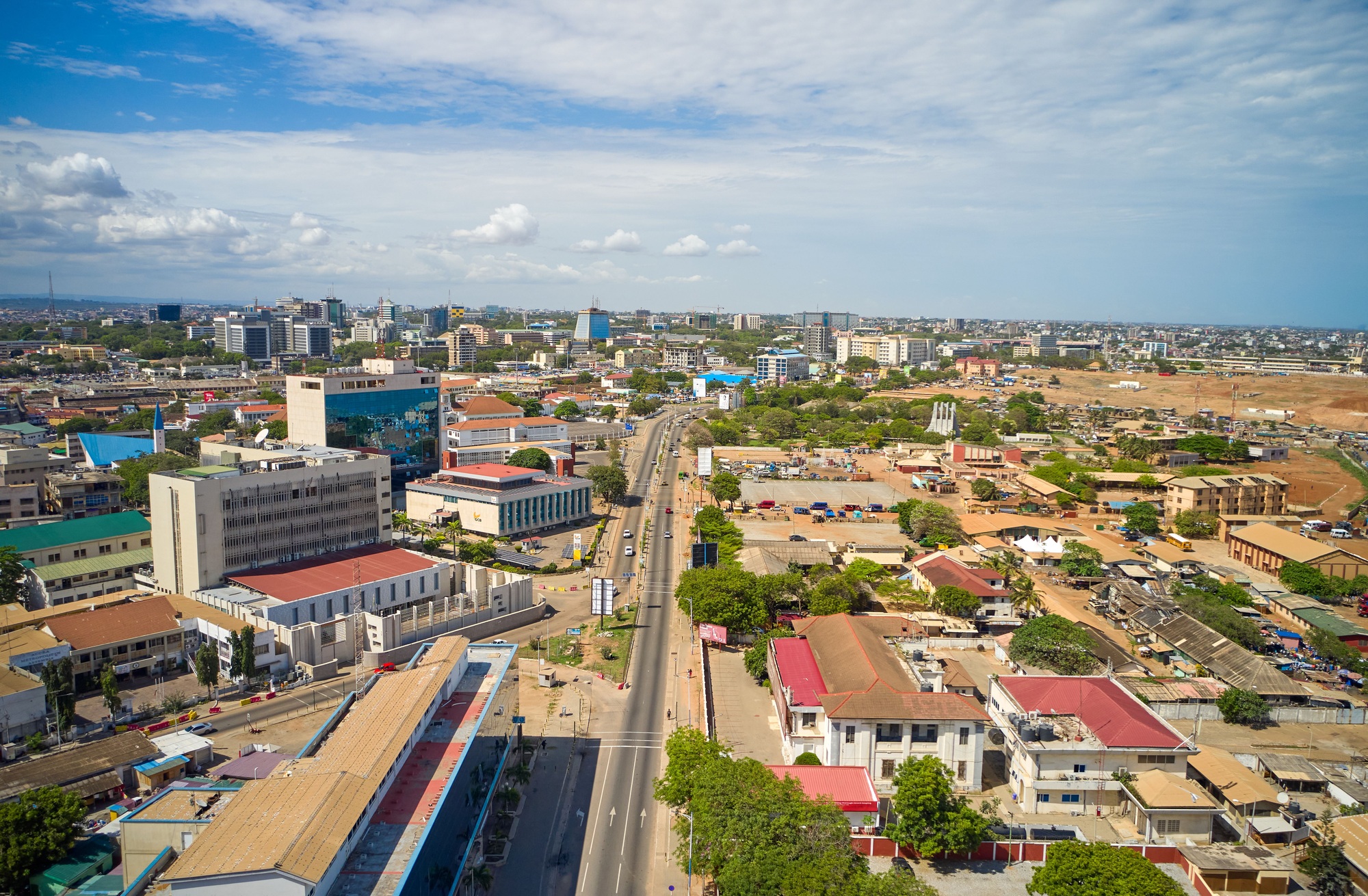No one stays on a sinking ship - this was the situation in 2024. The Ghanaian economy was overwhelmed with taxes from the government. With the global crisis still not fully waning, some multinational corporations operating had to call it quits. In 2025, things seem to be picking up, but will they be returning? This …
Multinational Exodus: How High Taxes Drove Companies Out of Ghana-and What It Would Take for Their Return

No one stays on a sinking ship – this was the situation in 2024. The Ghanaian economy was overwhelmed with taxes from the government. With the global crisis still not fully waning, some multinational corporations operating had to call it quits. In 2025, things seem to be picking up, but will they be returning? This report examines the companies that have left, analyzes the tax environment that prompted their exit, evaluates recent reforms, and assesses the likelihood of these corporations returning to Ghana in the future.
Companies That Have Exited the Ghanaian Market
A significant number of multinational corporations have relocated from Ghana to neighboring countries, citing unfavorable tax conditions and high operational costs. Among the prominent departures are Glovo, Dark and Lovely, Nivea, Jumia Foods, Bet 365, and Bic Pens. Additionally, French banking giant Société Générale terminated its 20-year presence in Ghana, adding to the growing list of international businesses leaving the country. Unilever Ghana’s Lipton Tea division also ceased operations in Ghana, further reflecting this troubling trend.
According to the President of the Foods and Beverages Association of Ghana (FABAG), John Awuni, “More companies have left the country than has been announced. I have talked with them one-on-one and many of them have opened satellite offices in Cote D’Ivoire and Togo“.
This suggests that the public record of departures may underestimate the actual scale of the corporate exodus, with numerous businesses quietly shifting operations to neighboring countries with more favorable tax environments.
Patterns of Corporate Relocation
The departure pattern reveals a strategic business adaptation rather than complete market abandonment in many cases. Abeku Gyan-Quansah, Tax Partner at PwC Ghana, has observed that companies are systematically restructuring their business models by moving core operations outside Ghana while maintaining a minimal presence. They then import finished goods back into the Ghanaian market, effectively circumventing the tax burden that made local production financially unviable. This approach allows these businesses to continue serving the Ghanaian consumer market without bearing the full weight of what they perceive as excessive taxation.
Ghana’s Tax Environment and Its Impact on Business
Tax Structure Before Recent Reforms
Ghana’s corporate tax landscape has been characterized by relatively high rates compared to neighboring countries. The standard corporate income tax (CIT) rate stands at 25%, with sector-specific rates reaching as high as 35% for mining and upstream petroleum companies. While there are reduced rates for manufacturing companies located outside Accra (75% of standard rate in regional capitals and 50% elsewhere in Ghana), these incentives have proven insufficient to retain multinational corporations.
The tax system has been particularly criticized for its approach to businesses operating at a loss. The “Growth and Sustainability Tax” requires companies that post account losses for five years or more to pay taxes despite their financial difficulties. This policy has been labeled as “unacceptable” by business leaders and identified as a significant factor in corporate flight from Ghana1.
Business Community Concerns
The Ghanaian business community has been vocal about its dissatisfaction with the tax environment. John Awuni of FABAG criticized the previous tax model as “tax upon tax,” asserting that it is “not a model that will let the private sector develop to create employment or make the economy expand”. The cumulative effect of multiple tax obligations has created a business environment where profitability becomes increasingly difficult to achieve, particularly for multinational companies that can easily relocate their operations.
Mark Badu-Aboayge, CEO of the Ghana National Chamber of Commerce and Industry, has highlighted another critical issue: the lack of meaningful consultation when introducing new taxes. This failure to engage with the business community has resulted in tax policies that may be misaligned with economic realities, further straining relationships between the government and private sector stakeholders.
Recent Tax Reforms and Their Potential Impact
March 2025 Tax Amendment Bills
In a significant policy shift, the Ghanaian Parliament approved a series of transformative tax amendment bills in March 2025 aimed at enhancing revenue efficiency while easing the financial burden on businesses. These reforms, spearheaded by Finance Minister Dr. Cassiel Ato Forson, represent a substantial recalibration of Ghana’s approach to taxation.
Key changes include:
- Elimination of the Electronic Transfer Levy (E-Levy), which had been a significant point of contention since its introduction.
- Abolition of the 10% withholding tax on bet winnings and gaming.
- Removal of the 1.5% withholding tax on unprocessed gold from small-scale miners.
- Scrapping of the carbon emissions levy, which should reduce operational costs for businesses.
These reforms signal a recognition by the government that previous tax policies were hampering business operations and economic growth. By removing these specific tax burdens, the government aims to create a more conducive environment for business development and potentially attract back companies that had left.
Existing Investment Incentives
Beyond the recent reforms, Ghana maintains a range of investment incentives that could prove attractive to returning companies. These include tax holidays of up to 10 years for companies in specific sectors such as agriculture, manufacturing, and tourism. Additionally, reduced corporate tax rates apply to businesses located in regional capitals (excluding Accra and Tema) and even lower rates for rural businesses.
Special Economic Zones (SEZs) offer additional benefits, including tax holidays, reduced tax rates, customs duty exemptions, and enhanced infrastructure support. These zones are specifically designed to create an attractive business environment with fewer bureaucratic hurdles and more favorable operating conditions.
Prospects for Corporate Return to Ghana
Factors Favoring Return
The recent tax reforms represent a significant step toward addressing the concerns that drove companies away from Ghana. The elimination of taxes like the E-Levy and emissions levy directly reduces operational costs, potentially improving profitability calculations for businesses considering a return.
Ghana’s geographic position as a gateway to West Africa and its relatively stable political environment compared to some neighboring countries remain strong advantages. The country’s infrastructure, though still developing, is more advanced than many alternatives in the region. Furthermore, the institutional support provided by organizations like the Ghana Investment Promotion Centre (GIPC) and Export-Import Bank of Ghana (EXIM Bank) offers valuable facilitation services that can ease business operations.
Challenges to Repatriation
Despite these positive developments, significant challenges remain that may deter companies from returning to Ghana. The standard corporate tax rate of 25% remains unchanged and is still relatively high compared to some competing countries in the region. Additionally, while specific taxes have been repealed, the overall complexity of the tax system continues to pose administrative burdens on businesses.
The “Growth and Sustainability Tax” affecting companies posting losses for five or more years has not been explicitly mentioned in the recent reforms, suggesting it may still be in effect. This particular policy was cited as especially problematic by business leaders and could continue to deter multinational corporations from re-establishing operations in Ghana.
Competitive Regional Landscape
Companies that have already established operations in neighboring countries like Côte d’Ivoire and Togo may be reluctant to incur the costs of relocating again, particularly if their new arrangements are proving financially advantageous. The business model of maintaining minimal presence in Ghana while producing elsewhere and importing finished products may remain attractive even with Ghana’s recent tax reforms.
Conclusion
The exodus of multinational companies from Ghana due to unfavorable tax conditions represents a significant challenge to the country’s economic development aspirations. While recent tax reforms indicate a recognition of these issues and a willingness to address them, the question of whether companies will return remains uncertain.
The 2025 tax amendment bills that eliminated several contentious taxes represent an important first step in creating a more business-friendly environment. However, these changes may not be sufficient to prompt an immediate return of companies that have already established operations elsewhere. The standard corporate tax rate remains unchanged, and specific concerns like taxation on loss-making businesses do not appear to have been fully addressed.
For companies to consider returning to Ghana, further reforms may be necessary, particularly addressing the overall tax burden and simplifying compliance requirements. Additionally, meaningful consultation with the business community in policy development could help ensure that future tax measures are more aligned with economic realities.
The likelihood of companies returning to Ghana will ultimately depend on how these recent tax reforms are implemented, whether additional business-friendly policies are introduced, and how Ghana’s overall value proposition compares to alternative locations in the region. While the current reforms create a more favorable outlook than before, a large-scale return of multinational companies in the immediate future remains uncertain without more comprehensive tax system restructuring.
Subscribe to MDBrief
Clean insights, a bit of sarcasm, and zero boring headlines.










